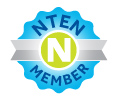Chris posits that all infrastructure needs to be "open source" becuase of Doc Serl's point that "You make money becuase of (open source), not with (open source).
It always shocks me how little history gets applied to thoughts like this. The Tennessee Valley Authority (rural electricication), Hoover Dam, the interstate highway system all were infrastructure investments where people made money BECAUSE of them, not WITH them.
The drive for privatization of infrastructure is becuase people don't like the concept of paying a gas tax to maintain the highway system... government isn't as efficient as the private sector, they say. Listen to the World Bank and they will tell you the water provision in the developing world should be privatized since governments have largely failed at providing cheap clean water.
I like Chris's vision of a water system with Digital Rights Management (DRM), you can use the water to drink at one price, but you need to pay extra to wash your clothes.
The point here is about trade offs. Governments are inefficient in one way (pork highway projects for example). The private sector is inefficient in another way (maybe poor people couldn't use the highways if the private sector built them, casue there isn't much money to be made from poor folks).
Open Source, however, overlays a concept of self-organization that both conservatives and liberals should be really excited about. First, those with a need can self organize... if we need a road to be maintained, the folks with the need figure out how to do it (peering aragements between ISPs, the evolution of Apache as the core infrastructure of the web). The big bad government doesn't even really have to be in the mix.
The liberals can embrace open source becuase it is non-exclusive. Poor folks face no finnacial barrier to participating... to making money BECAUSE of the infrastructure.
But corporate control of infrastructure means that in the interests of profits, we need both heavy government involvement (copyright laws, DRM legistations, courts to enforce the stuff) AND exclusivity... you only get to use the infrastructure if you pay the profit maximizing rate.
If I thought for a moment that your average elected official could even understand the arguement I just made or if I thought that corporate officers could look past their own greed long enough to be a citizen, then I would think we are on the brink of a new world defined by opportunity for all (making money/progress/art/ideas/etc BECAUSE of (open source) infrastructure). But I am a little more cynical than that and see the all to likely outcome to be a few corporations making money WITH proprietary infrastructure.
Technorati Tags: open source, infrastructure

